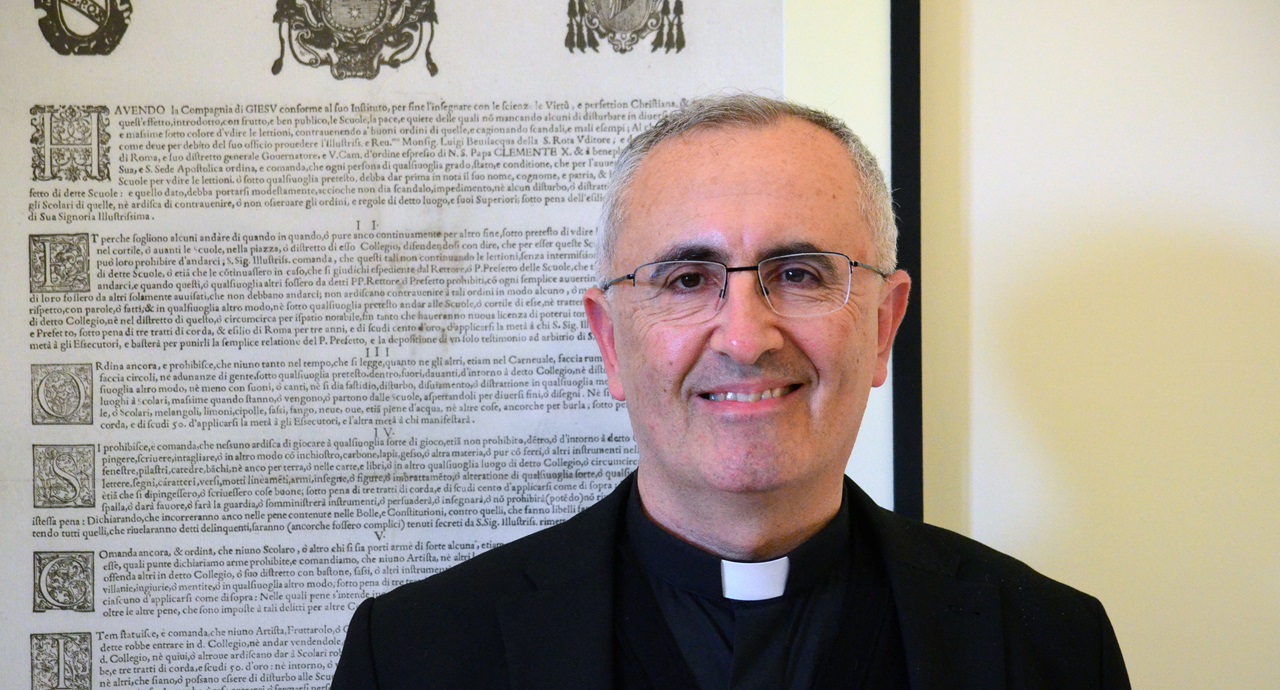Collegium Maximum
- Home
- Academic Units
- Missions
- Collegium Maximum


Research, study and teaching activities in the Collegium Maximum are carried out according to the centuries-old Jesuit pedagogy, which is based on experience and in which the protagonist is the student. To deepen the principles, history and relevance of this pedagogy, the journal ‘Ignaziana’ offers annual activities accessible to all and qualified semi-annual publications. In the start-up phase of the new Gregorian University, the academic community of Collegium Maximum sees the integration with the Biblical Institute and the Oriental Institute as a fine opportunity to expand, update and enhance the educational offerings for the benefit of students.
Fr. Pino Di Luccio, S.J.
President of Collegium Maximum
The Collegium Maximum, as an internal articulation of the Pontifical Gregorian University, is composed of the following academic units canonically erected or approved by the Apostolic See: the Faculty of Theology, the Faculty of Canon Law, the Faculty of Philosophy, the Faculty of Church History and Cultural Heritage, the Faculty of Missiology, the Faculty of Social Sciences, the Institute of Spirituality, the Institute of Psychology and the Institute of Anthropology.
Within it, there are other academic units that cultivate disciplines related directly or indirectly to Christian Revelation and others that serve the Church’s mission in a direct way or contribute greatly to the work of evangelisation: the ‘St. Peter Favre’ Centre for Formators for the Priesthood and Consecrated Life, the ‘Cardinal Bea’ Centre for Judaic Studies, the ‘Alberto Hurtado’ Centre for Faith and Culture, the Centre for Interreligious Studies, the Centre for Ignatian Spirituality.
According to the General Statutes of the Gregorian University (art. 8 § 2), the fourfold purpose of the Collegium Maximum consists in